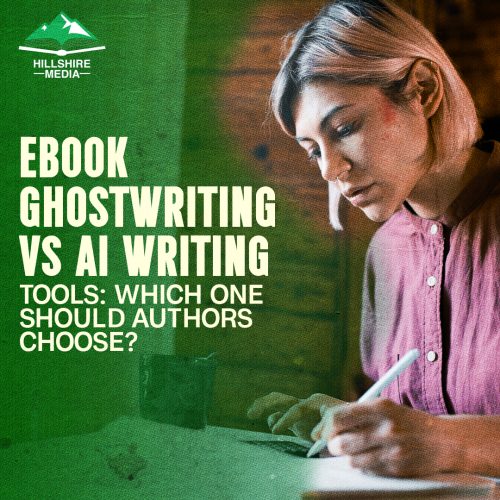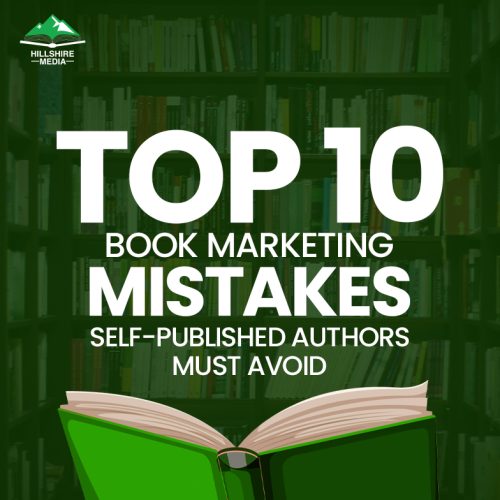Introduction
If you’re an author wondering whether to trust AI writing tools or invest in ebook ghostwriting services, you’re not alone. The publishing world is in the middle of a revolution. Artificial Intelligence has become a common tool for drafting articles, blogs, and even full-length books. At the same time, ghostwriters professional wordsmiths who bring your story or expertise to life continue to play an essential role in the creative process.
The dilemma is real: should authors rely on the efficiency of AI-assisted drafting or the craftsmanship of a professional ghostwriter? Both options promise speed, accessibility, and the chance to bring your ideas to life. Yet, they offer dramatically different results when it comes to tone, originality, and credibility.
By the end of this article, you’ll have a clear understanding of which path suits your goals, budget, and publishing vision. Whether you lean toward AI ebook creation or human-driven storytelling, this guide will help you make the right choice.
Why This Comparison Matters Now
In 2025, the debate between AI and ghostwriting is louder than ever. AI has surged in popularity, with AI writing tools for authors promising quick drafts, cost efficiency, and instant ideas. Platforms like ChatGPT, Jasper, and Sudowrite are widely used by writers and publishers seeking to speed up the ebook writing process.
At the same time, the publishing industry remains grounded in one core truth: quality sells. Readers are drawn to originality, emotional resonance, and expertise. That’s where ebook ghostwriting services stand apart. Ghostwriters are not just typing words; they are shaping narratives that capture voices, preserve authenticity, and establish authority.
For many authors, this creates confusion. Should they join the AI wave for affordability and convenience, or rely on a professional ghostwriter for lasting impact? The answer depends on goals. A self-help author seeking credibility may find ghostwriting indispensable, while a beginner writing a short guide might lean on AI.
This comparison matters because authors today must navigate not only creative decisions but also technological and market-driven ones. The choice between ghostwriting and AI will ultimately determine whether a book fades quickly or establishes itself as a powerful, lasting contribution.
What are e-book ghostwriting Services?
At its core, ebook ghostwriting services are professional writing solutions where an experienced writer brings your vision to life. Unlike AI or self-drafting, ghostwriting ensures your ideas are expressed with clarity, creativity, and professionalism. The process usually begins with discovery calls, where the ghostwriter learns about your goals, target readers, and desired voice. From there, they craft a detailed outline, write drafts, and collaborate with you through revisions until the ebook is polished and ready for publishing.
The benefits are immense. A professional ghostwriter captures nuance, emotional depth, and expertise in ways AI cannot. They adapt to your unique tone—whether conversational, academic, or inspirational—so that the finished ebook creation feels authentic to you. This credibility can be crucial, especially for memoirs, leadership books, or thought-leadership content in business.
Ghostwriting is also time-saving. Many professionals, entrepreneurs, and creatives lack the bandwidth to write full manuscripts but still want to share their stories. That’s why hiring a ghostwriter can transform overwhelming ideas into a market-ready book.
For instance, memoirs often require sensitivity and emotional storytelling—qualities that only a human can deliver. Similarly, brand storytelling demands a voice that aligns with corporate identity. In all these cases, ghostwriters bridge the gap between vision and execution.
What Are AI Writing Tools?
AI writing tools for authors are software platforms that use machine learning to generate text based on prompts. They’ve become increasingly sophisticated in recent years, capable of producing everything from outlines to near-complete manuscripts. Popular examples include Jasper, ChatGPT, and Sudowrite.
The biggest advantage of AI is speed. Within minutes, authors can produce a draft chapter, brainstorm book titles, or generate marketing copy. For beginners, AI offers a quick way to overcome writer’s block or get a “first draft” on the page. Cost-effectiveness is another appeal—most tools are far cheaper than hiring a professional ghostwriter.
However, AI comes with limitations. The content often lacks depth, originality, and emotional connection. While AI can mimic human writing styles, it struggles with context, cultural nuance, and consistency across long projects. Editing is almost always required. Authors using AI often spend significant time revising to ensure the book feels authentic.
AI also raises concerns about copyright and plagiarism. Since AI pulls from massive datasets, originality can sometimes be questioned. For professional publishing—particularly in competitive markets—this can undermine credibility.
In short, AI tools are best for AI-assisted drafting rather than final publication. They are an affordable way to get started, but rarely deliver a polished, market-ready book on their own.
Ebook Ghostwriting vs. AI Writing Tools – Side-by-Side Comparison
Table 1: When evaluating ebook ghostwriting services versus AI writing tools for authors, it helps to see them side by side
| Feature | Ghostwriting Services | AI Writing Tools |
| Quality | High-quality, polished manuscripts tailored to your voice. | Often generic; requires heavy editing. |
| Creativity | Deep storytelling, nuance, and originality. | Limited creativity; relies on existing data. |
| Speed | Slower (weeks or months), but ensures depth. | Very fast (minutes to hours). |
| Cost | Higher investment but long-term value. | Affordable subscription models. |
| Copyright | You own 100% of the work. | May involve questions of originality. |
| Revisions | Collaborative process with unlimited revisions possible. | Minimal revision features; requires manual editing. |
From this table, the trade-offs are clear. Ghostwriting emphasizes quality and credibility, while AI emphasizes speed and cost-effectiveness. The question becomes: what matters more for your project?
For example, a business leader writing a thought-leadership book will likely prioritize credibility and hire a ghostwriter. A hobbyist author writing a short guide may prioritize speed and lean on AI. Neither is “better” universally—it’s about aligning with your publishing goals.
When Authors Should Choose Ghostwriters
There are certain scenarios where ebook ghostwriting services are the clear winner. Memoirs, for instance, require emotional storytelling and sensitivity that only a human can deliver. Business professionals writing to establish authority also benefit from ghostwriting, since credibility is essential for brand building.
If your goal is to produce a book that elevates your reputation, generates speaking opportunities, or adds to your legacy, investing in a professional ghostwriter is invaluable. Ghostwriters bring nuance, cultural context, and emotional resonance that AI cannot replicate.
Additionally, ghostwriters can handle complex research-based books, blending technical detail with readability. For nonfiction genres like health, self-help, or finance, this ensures accuracy and engagement.
In short: if quality, credibility, and reader impact are your priorities, ghostwriting is the right path.
When Authors Should Use AI Tools
That said, AI has its place in ebook creation. For authors on tight budgets or those experimenting with simple projects, AI writing tools for authors provide a valuable entry point. Drafting short guides, workbooks, or low-risk ebooks can be achieved quickly with AI.
AI is especially useful for brainstorming. Authors can generate outlines, book titles, or chapter summaries in seconds. For AI-assisted drafting, it saves time and reduces the intimidation of staring at a blank page.
However, AI-generated text should always be treated as a draft—not the final product. Editing, rewriting, and fact-checking are crucial before publishing—authors who rely solely on AI without human oversight risk releasing low-quality work.
Hybrid Approach: Best of Both Worlds
Many authors are finding success in blending AI with ebook ghostwriting services. This hybrid method allows AI to handle the initial drafting—speeding up the process—while a professional ghostwriter refines, expands, and humanizes the content.
This approach combines efficiency with quality. The author saves time and money but still benefits from the polish and expertise of a ghostwriter. For instance, AI can generate a 10-page draft of a self-help guide, while the ghostwriter transforms it into a compelling 100-page manuscript that resonates with readers.
This balance ensures that projects remain authentic while also leveraging modern tools.
Case Study / Mini Example
Consider Sarah, an entrepreneur who wanted to write a guide on leadership. She started with AI tools to generate a rough draft of her ideas. While helpful for brainstorming, the draft lacked her personal voice and depth. She then hired a professional ghostwriter who expanded her AI draft into a polished, 40,000-word ebook.
The result? A book that established her credibility, landed her podcast interviews, and generated new business leads. By combining AI efficiency with human craftsmanship, Sarah achieved both speed and quality.
This case shows how authors don’t have to choose one path exclusively—the smartest strategy often involves using both.
Conclusion
The choice between ebook ghostwriting services and AI writing tools for authors depends on your goals. If you want speed, affordability, and simple drafts, AI is a useful tool. But if your priority is credibility, originality, and long-term reader impact, hiring a professional ghostwriter is the wiser investment.
Ultimately, your decision should reflect your publishing vision. Consider your budget, timeline, and the expectations of your target audience. For many authors, a hybrid approach offers the best results.
Ready to take the next step? Explore our Ebook Ghostwriting Services to see how we can transform your vision into a market-ready book that truly stands out.
FAQ
What is ebook ghostwriting?
Ebook ghostwriting is when a professional writer creates a book on your behalf, based on your ideas and vision. You retain full ownership and authorship.
Can AI replace ghostwriters?
AI can assist with drafting, but cannot fully replace the nuance, emotion, and credibility a human ghostwriter provides.
Which is more affordable for authors?
AI tools are more budget-friendly upfront. However, ebook ghostwriting services provide long-term value through quality, credibility, and market impact.



